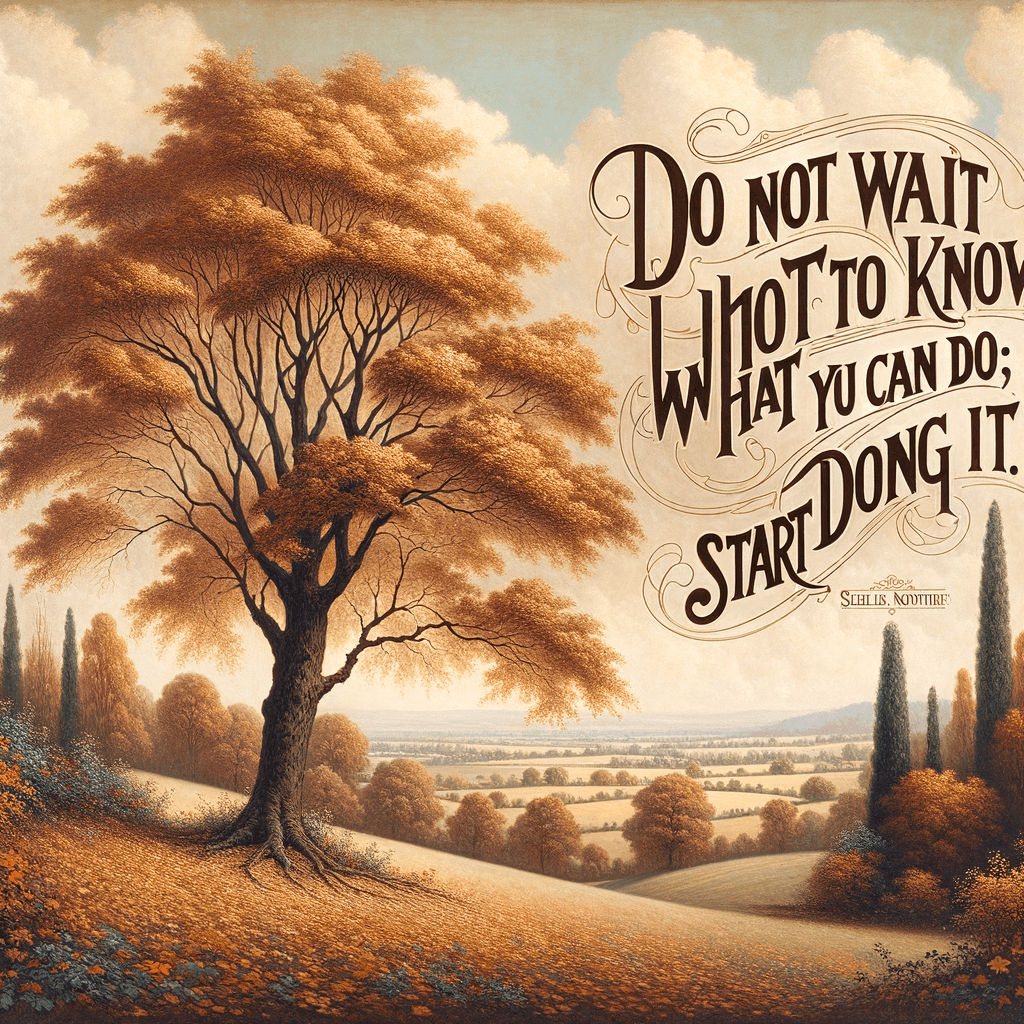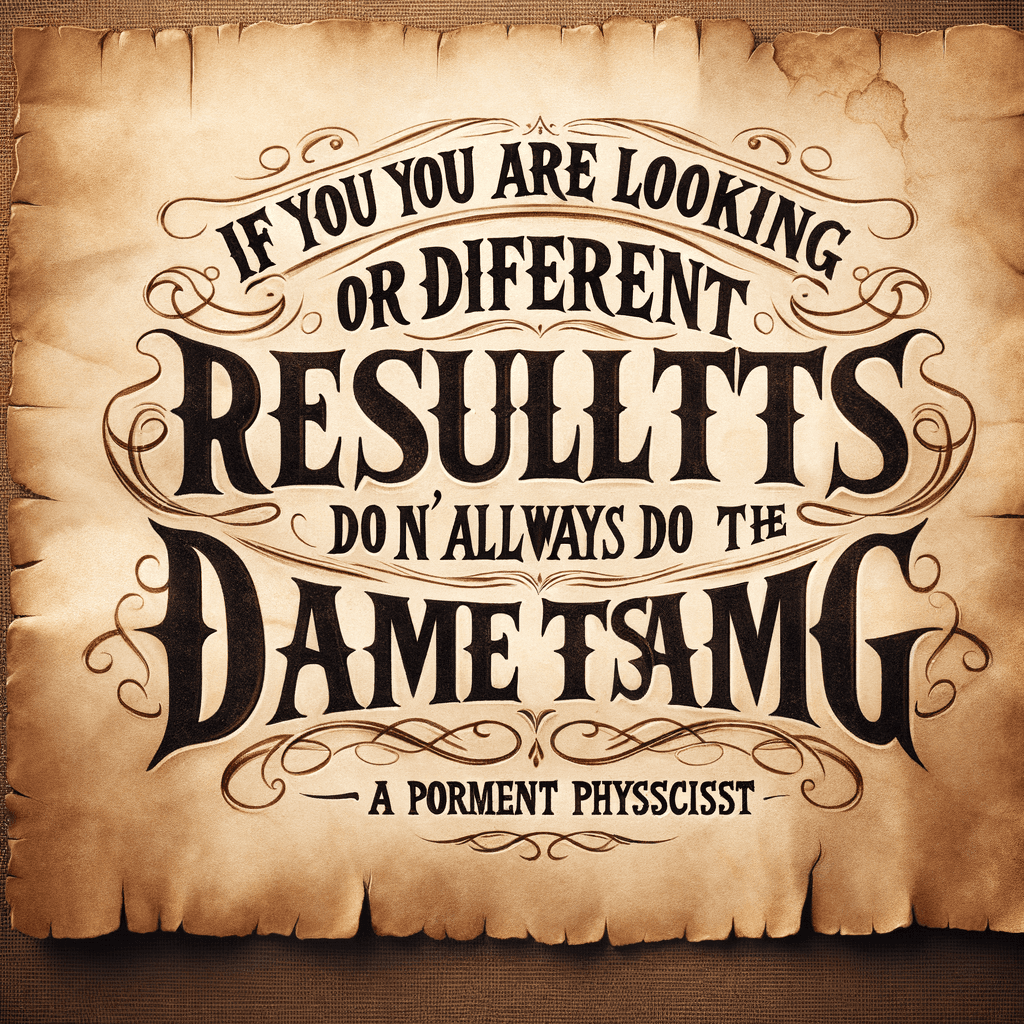#Experimentation
Quotes tagged #Experimentation
Quotes: 18

Hesitation as Experiment, Failure as Data
With that reframe in place, the quote naturally leads to iteration. Data is only useful when it returns to the system, so the real promise here is a feedback loop: attempt, observe, revise, repeat. Over time, the loop reduces the cost of being wrong because each “miss” becomes a guidepost toward what to try differently. In practical terms, this is how engineers debug, how writers revise, and how entrepreneurs refine a product-market fit. The continuity matters: instead of a single heroic effort, progress becomes a series of manageable experiments whose outcomes steadily narrow uncertainty. [...]
Created on: 1/4/2026

Turning Failure into Evidence for Better Choices
Seen in the wider arc of Camus’ thought, especially in The Myth of Sisyphus (1942), the quote resembles his insistence that we continue acting even when life offers no guaranteed consolations. If the world can feel indifferent, then treating failure as a verdict would be an easy excuse to stop pushing the boulder. Instead, Camus’ sensibility encourages a kind of defiant experimentation: you keep going, not because you are promised success, but because choosing to test, adjust, and try again is itself a form of freedom. In that sense, the hypothesis mindset is a practical expression of his philosophy—an everyday rebellion against despair. [...]
Created on: 12/15/2025

Turning Obstacles Into Experiments That Teach Progress
Feynman’s line reframes frustration as curiosity. An obstacle, in this view, is not a dead end but an unanswered question: What happens if I try this instead? By treating difficulties as experiments, we shift from feeling stuck to actively probing reality. This change of stance is subtle yet powerful, because it moves our attention from blame or self-doubt toward discovery and learning. [...]
Created on: 12/8/2025

Turning Every Attempt Into a Living Experiment
Moreover, thinking experimentally builds resilience. When each effort is only one in a series, setbacks lose their finality. Athletes, for instance, analyze every performance—fast races and disappointing ones alike—as feedback to refine training plans. Similarly, Curie persisted through financial hardship, skepticism from peers, and serious health risks, treating obstacles as conditions to be studied and worked around rather than as conclusive barriers. This iterative stance helps people persist long enough for improvement to emerge. [...]
Created on: 12/6/2025

Never Be Afraid to Try Something New - Unknown
The quote compares two famous historical and biblical events: Noah’s Ark, which saved life during the flood, and the Titanic, a luxury liner that sank, showing that success and failure are not determined solely by experience or professionalism. [...]
Created on: 11/4/2024

Do Not Wait to Know What You Can Do; Start Doing It - Henri Matisse
This quote emphasizes the importance of taking initiative and acting rather than waiting for the perfect moment or full clarity on one's capabilities. [...]
Created on: 8/7/2024

If You Are Looking for Different Results, Do Not Always Do the Same Thing - Albert Einstein
In problem-solving contexts, this advice highlights the importance of thinking outside the box. Persistently using the same methods to solve a problem won't lead to new solutions. [...]
Created on: 6/6/2024